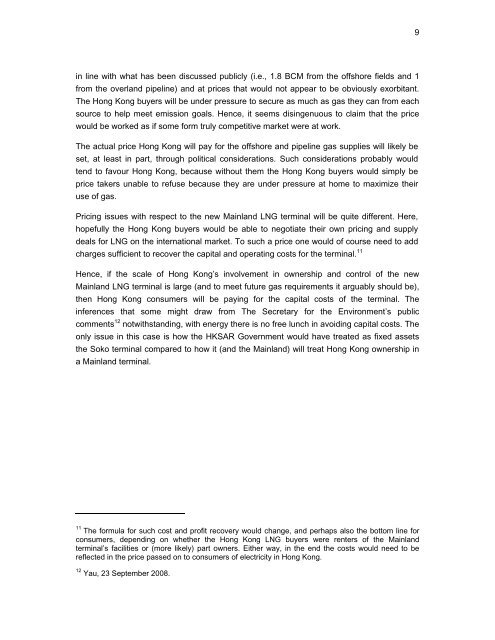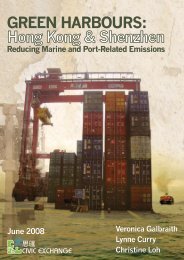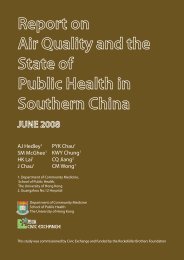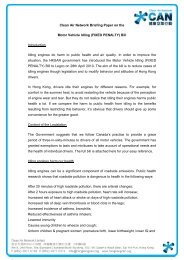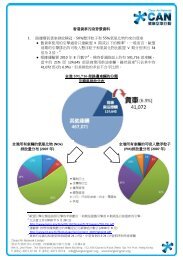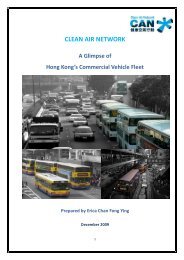Create successful ePaper yourself
Turn your PDF publications into a flip-book with our unique Google optimized e-Paper software.
9<br />
in line with what has been discussed publicly (i.e., 1.8 BCM from the offshore fields and 1<br />
from the overland pipeline) and at prices that would not appear to be obviously exorbitant.<br />
The <strong>Hong</strong> Kong buyers will be under pressure to secure as much as gas they can from each<br />
source to help meet emission goals. Hence, it seems disingenuous to claim that the price<br />
would be worked as if some form truly competitive market were at work.<br />
The actual price <strong>Hong</strong> Kong will pay for the offshore and pipeline gas supplies will likely be<br />
set, at least in part, through political considerations. Such considerations probably would<br />
tend to favour <strong>Hong</strong> Kong, because without them the <strong>Hong</strong> Kong buyers would simply be<br />
price takers unable to refuse because they are under pressure at home to maximize their<br />
use of gas.<br />
Pricing issues with respect to the new Mainland LNG terminal will be quite different. Here,<br />
hopefully the <strong>Hong</strong> Kong buyers would be able to negotiate their own pricing and supply<br />
deals for LNG on the international market. To such a price one would of course need to add<br />
charges sufficient to recover the capital and operating costs for the terminal. 11<br />
Hence, if the scale of <strong>Hong</strong> Kong’s involvement in ownership and control of the new<br />
Mainland LNG terminal is large (and to meet future gas requirements it arguably should be),<br />
then <strong>Hong</strong> Kong consumers will be paying for the capital costs of the terminal. The<br />
inferences that some might draw from The Secretary for the Environment’s public<br />
comments 12 notwithstanding, with energy there is no free lunch in avoiding capital costs. The<br />
only issue in this case is how the HKSAR Government would have treated as fixed assets<br />
the Soko terminal compared to how it (and the Mainland) will treat <strong>Hong</strong> Kong ownership in<br />
a Mainland terminal.<br />
11 The formula for such cost and profit recovery would change, and perhaps also the bottom line for<br />
consumers, depending on whether the <strong>Hong</strong> Kong LNG buyers were renters of the Mainland<br />
terminal’s facilities or (more likely) part owners. Either way, in the end the costs would need to be<br />
reflected in the price passed on to consumers of electricity in <strong>Hong</strong> Kong.<br />
12 Yau, 23 September 2008.


